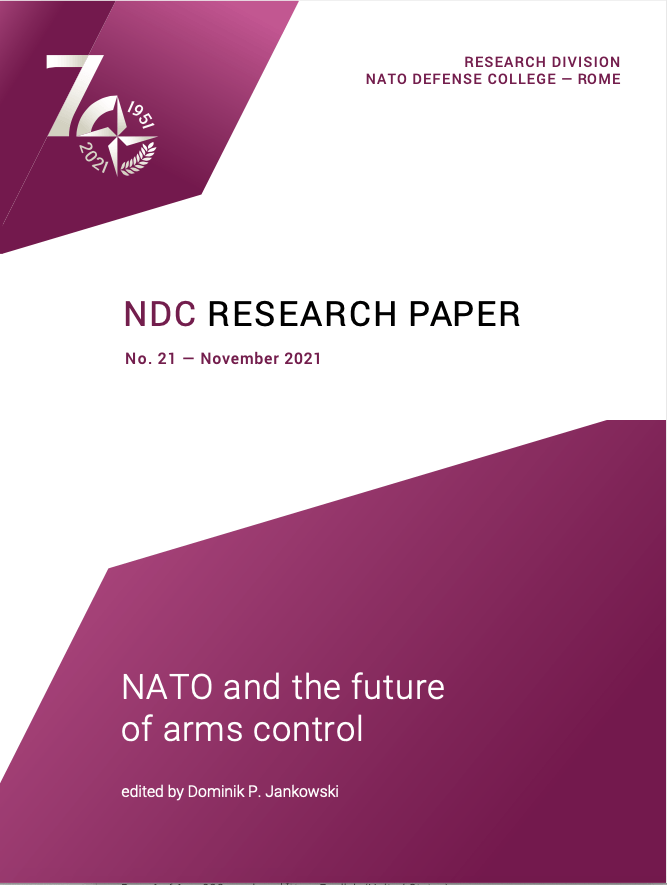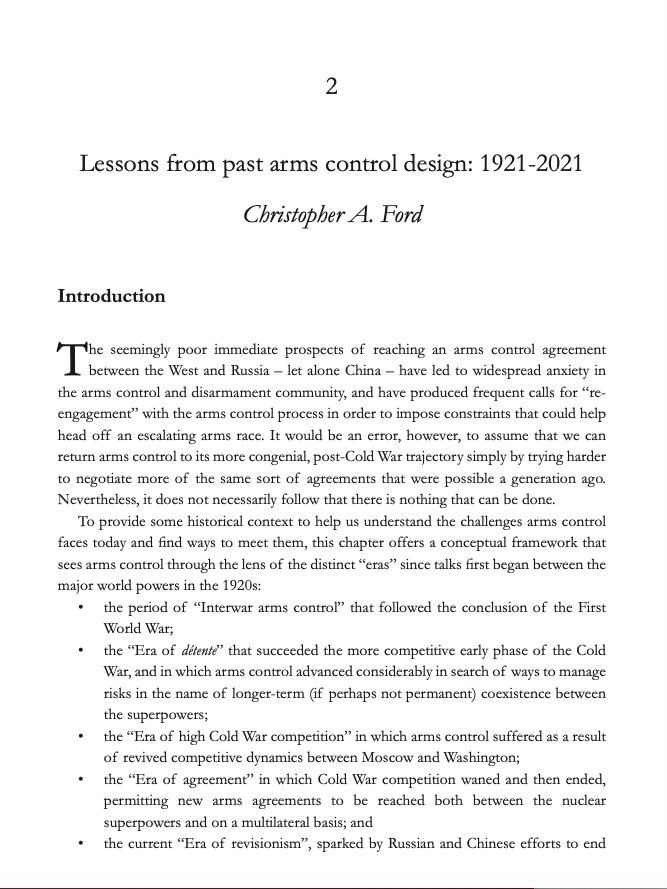Lessons from past arms control design: 1921-2021
Dr. Christopher Ford • November 24, 2021
Dr. Ford recently contributed the second chapter to the NATO Defense College's new publication, NATO and the Future of Arms Control, NDC Research Paper #21 (November 2021). His chapter, "Lessons from past arms control design: 1921-2021," may be found in Paper #21 by downloading it from the NDC website here, or by using the button below.



The year 2025 is ageing fast, and the end of the year is now just around the corner. So here’s a compilation of my public work product from the year. As you can see from the list of 10 papers or articles and 26 presentations below, it’s been a busy one. Keep checking New Paradigms Forum for new material as we move into 2026. And Happy New Year, everyone!

Below is the prepared text upon which Dr. Ford based his shorter oral remarks on December 7, 2025, at the Doha Forum, on a panel on “Mediating in an Era of Nuclear Risks and Superpower Rivalry” organized by the Qatar Mediation Forum. Dr. Ford was joined on the panel by Dmitri Suslov and Wu Chunsi, and the discussion was moderated by Ambassador Karim Haggag, director of the Stockholm Peace Research Institute.

Below is the prepared text upon which Dr. Ford based his shorter oral remarks to the U.S-China Nuclear Workshop on November 19, 2025, convened by the Protect on Managing the Atom and the Council on Strategic Risks, held at the Belfer Center at Harvard University’s John F. Kennedy School of Government.






